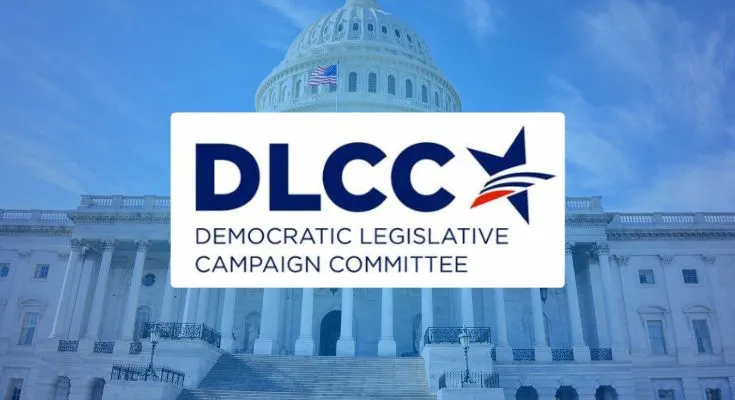The Democratic Legislative Campaign Committee (DLCC) has announced a significant $10 million initiative aimed at state legislative races, part of a broader $60 million strategy for the 2024 election cycle. This early investment underscores the growing importance of state legislatures in shaping policy and impacting national politics.
The $10 million will be allocated to Democratic caucuses in critical states including Arizona, Georgia, Kansas, Michigan, Minnesota, New Hampshire, North Carolina, Pennsylvania, and Wisconsin. While many of these are swing states, traditionally Republican Kansas is also included, as Democrats aim to diminish the Republican supermajority, thereby empowering Democratic Governor Laura Kelly to more effectively veto legislation.
The campaign’s broader outreach includes a public-facing website designed to highlight and fundraise for a rotating roster of state legislative candidates, extending even into solidly Republican states like Idaho and Oklahoma. The goal is to build long-term Democratic presence and influence in these areas.
The DLCC’s initiative highlights the critical role state legislatures play in enacting policies that directly affect citizens’ lives. Issues such as abortion, voting rights, gun control, LGBTQ rights, and economic policies like paid leave are often decided at the state level. The committee argues that regardless of the outcome of the 2024 presidential election, state legislatures will significantly influence the implementation of both Democratic and Republican agendas.
Heather Williams, president of the DLCC, stressed the importance of focusing beyond national politics: “It is so crystal clear that regardless of who wins the White House, this Republican agenda — this dangerous MAGA Republican agenda — is going to move through our statehouses. We can’t just continue to pay attention to what is happening in Washington, D.C., and our federal races.”
The DLCC’s strategy also aims to boost turnout for presidential and congressional races by engaging voters through state legislative candidates. Amanda Litman, co-founder of Run for Something, noted that state legislative candidates often energize voters who are less enthusiastic about national candidates, potentially increasing overall turnout.
The first beneficiaries of the DLCC’s funding will be candidates from North Carolina and Pennsylvania. In North Carolina, Democrats aim to disrupt Republican supermajorities, while in Pennsylvania, they seek to protect a narrow House majority. More candidates will be featured as state primaries unfold.
Historically, Republicans have dominated state legislative races, even during years when Democrats performed well nationally. This success has been attributed to superior organization and funding. In response, Democrats are fielding candidates in every legislative district in states like Florida and every Senate seat in Wisconsin, reflecting an unprecedented push to compete in traditionally Republican areas.
The DLCC’s Republican counterpart, the Republican State Leadership Committee (RSLC), has not disclosed its spending plans but has acknowledged a potential funding shortfall compared to Democrats. RSLC President Dee Duncan criticized the Democratic approach, suggesting it relies on “massive investments from the national liberal money machine.”
Republicans are focused on defending their majorities in states such as Arizona, North Carolina, and Wisconsin, where redistricting has complicated their efforts. They also aim to regain control in Michigan and Pennsylvania and to challenge Democratic dominance in states like California and New York.
This early and substantial investment by the DLCC signals a concerted effort to shift the balance of power in state legislatures, emphasizing the crucial role these bodies play in shaping both state and national policy outcomes.








